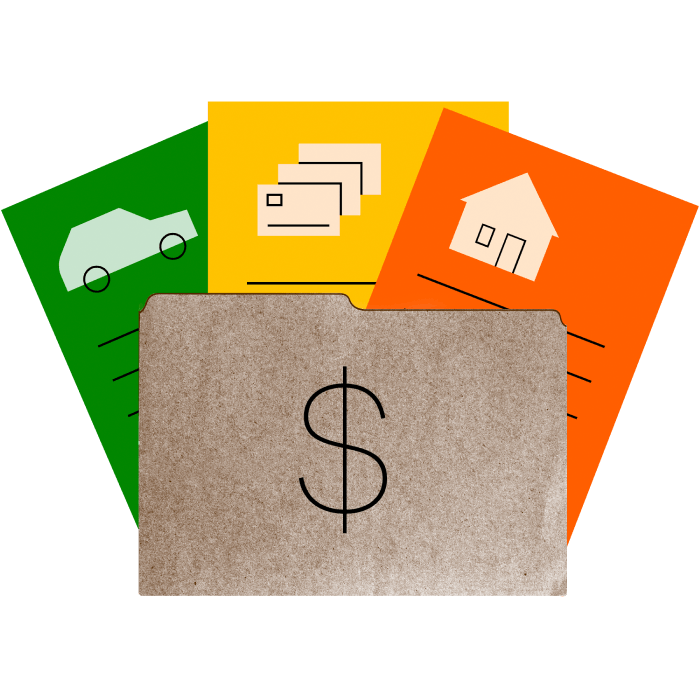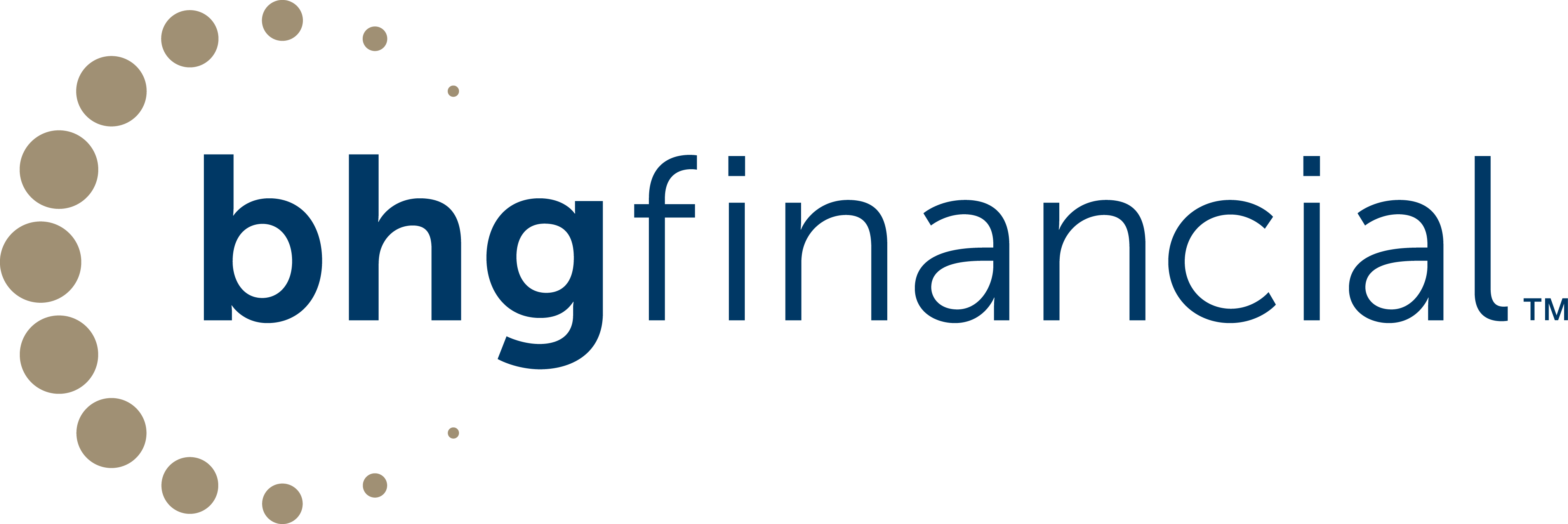Debt Consolidation Loan Rates 2026
Need extra funds? Compare offers for up to $200,000 and see if you can get the money you’re looking for.
 Image: File folder with auto, credit card and home loans in it
Image: File folder with auto, credit card and home loans in itThe offers that appear on this site are from third party advertisers from which Credit Karma receives compensation. This compensation may impact how and where products appear on this site (including, for example, the order in which they appear). It is this compensation that enables Credit Karma to provide you with services like free access to your credit scores and free monitoring of your credit and financial accounts at no charge. Credit Karma strives to provide a wide array of offers for our members, but our offers do not represent all financial services companies or products.
Common uses for a personal loan
- Major Purchase Loans
- Home Improvement Loans
- Unexpected Cost Loans
- Same-Day Loans
- Bad Credit Loans
- Shop All Loans
Tell us what you are looking for.
 Image: pl bullseye icon
Image: pl bullseye iconLoan Offers tailored to you
Log in or sign up to see offers that are personalized to your financial profile.
Here are a few lenders you’ll find on Credit Karma
Credit Karma earns a commission from these loan providers. Looking for our editors’ picks instead?
Hear from our editors: Best debt consolidation loans of 2026
Updated December 22, 2025
This date may not reflect recent changes in individual terms.
Editorial Note: Intuit Credit Karma receives compensation from third-party advertisers, but that doesn’t affect our editors’ opinions. Our third-party advertisers don’t review, approve or endorse our editorial content. Information about financial products not offered on Credit Karma is collected independently. Our content is accurate to the best of our knowledge when posted.
Written by: Jennifer Brozic
Edited by: Erin Dunn, Managing Editor, Loans
If you’ve got high-interest debt from credit cards, medical bills or payday loans, a debt consolidation loan may help you lower your monthly payments and create a plan to eliminate debt.
Finding the best debt consolidation loan for your situation can help you make that goal a reality. We’ve rounded up our picks for the best debt consolidation loans, so keep reading to see which loan might be the best option for you.
- Good for direct payments for debt consolidation: Discover
- Good for credit card debt consolidation: Happy Money
- Good for low interest rate: LightStream
- Good for those building credit: Avant
- Good for membership perks: SoFi
- Good for in-person assistance: Wells Fargo
- Good for a no-fee promise: Jenius Bank
- Good for existing customers: American Express
- What is a debt consolidation loan?
- How do I compare and choose a debt consolidation loan?
- When is a debt consolidation loan a good idea?
- How to get a debt consolidation loan
- What are alternatives to debt consolidation loans?
- Is a debt consolidation loan good for your credit?
- FAQs about debt consolidation loans
Good for direct payments for debt consolidation: Discover
Why a Discover personal loan stands out: Discover personal loans offer direct payments to your creditors on your behalf, making debt consolidation a hands-off process. Keep in mind that you can’t use a Discover personal loan to pay off a Capital One credit card or Discover credit card directly. Discover offers personal loans that range between $2,500 and $40,000 and have no origination fees.
Pros
- Competitive rates
- No origination fee
- Fast funding possible
- Flexible loan repayment terms from 36 to 84 months
Cons
- Minimum income requirement
- Co-applicants not accepted
Read Discover personal loan reviews to learn more.
Good for credit card debt consolidation: Happy Money personal loans
Why a Happy Money personal loan stands out: Happy Money’s personal loan is designed specifically for people who want to eliminate or reduce high-interest credit card balances. Happy Money matches you with a partner lender and, if you qualify, will show you different options tailored to your debt-payoff goals including the lowest rate and fastest payoff plan.
Pros
- Solid loan amounts range of $5,000 to $50,000
- Prequalify to check potential rates with a soft credit check
- Direct payments to creditors
- No late fees
Cons
- Origination fee
- Not a direct lender
- Not available in all states
Read reviews of Happy Money personal loans.
Good for low interest rate: LightStream personal loans
Why a LightStream personal loan stands out: LightStream, the online-lending division of Truist, offers competitive interest rates for debt consolidation loans when you enroll in autopay. Its “rate beat” program also promises to beat a competing lender’s rate by a small percentage point if you are approved for a lower rate elsewhere and meet certain conditions.
Pros
- Same-day funding possible
- No origination, prepayment or late payment fees
- Flexible repayment term lengths
Cons
- Need a strong credit and financial profile to qualify
- No option for preapproval to check potential rate
- Customer service limited to email only
Read reviews of LightStream personal loans.
Good for people building credit: Avant personal loans
Why an Avant personal loan stands out: Avant is an online lender that considers people who don’t have perfect credit. In fact, Avant says on its website that most of its customers have credit scores between 600 and 700 (though its minimum requirement is 550). Keep in mind that staying current on monthly loan payments can help improve your payment history, which can lead to better credit scores over time. Avant does perform a hard credit inquiry if you officially apply for a loan, which can have a minor short-term impact on your scores.
Pros
- Prequalification to check potential rate without affecting credit
- Possible fast next-day funding
- Good range of loan amounts: $2,000 to $35,000
Cons
- High maximum APR
- May charge a high upfront loan administration fee
- Fees for late payments and insufficient funds
Read reviews of Avant personal loans.
Good for membership perks: SoFi personal loans
Why a SoFi personal loan stands out: Getting a personal loan with SoFi offers unique membership perks like financial planning and member-only networking events. Members can also access offers on flights, hotels and rental cars via SoFi Travel.
Pros
- Competitive rates and interest rate discount for automatic payments
- Same-day funding possible
- Direct payments for debt consolidation
- Large loan amounts available up to $100,000
Cons
- Strict eligibility requirements
- Origination fees up to 7% of loan amount
Read reviews of SoFi personal loans to learn more.
Good for in-person assistance: Wells Fargo personal loans
Why a Wells Fargo personal loan stands out: Wells Fargo has thousands of physical branches across the United States, which can be particularly beneficial for existing customers who value in-person assistance and want the convenience of managing their personal loan through a well-established bank.
Pros
- Competitive rates
- Same-day funding possible
- Good loan amounts range: $3,000 to $100,000
Cons
- Must be an existing Wells Fargo customer to apply
Read reviews of Wells Fargo personal loans.
Good for a no-fee promise: Jenius Bank personal loans
Why a Jenius Bank personal loan stands out: Jenius Bank personal loans come with no origination, prepayment or late payment fees, making it an attractive option for borrowers who want to minimize additional costs.
Pros
- 24-hour daily customer service
- Competitive rates and an autopay discount
- Possible fast funding as soon as the next business day
Cons
- No physical branches
- Not available in all states
- Personal loan applications only available through certain providers (including Credit Karma)
Read reviews of Jenius Bank personal loans to learn more.
Good for existing customers: American Express personal loans
Why an American Express personal loan stands out: American Express personal loans are offered exclusively to existing eligible cardholders. If you’re currently a cardholder, you can see personal loan offers without a hard credit inquiry. But keep in mind that if you’re approved for a loan, you won’t be able to use it to pay off American Express credit cards.
Pros
- Fast funding possible as soon as the next day after approval
- No origination fee
- Competitive rates
Cons
- Must be an existing American Express cardholder to apply
Read reviews of American Express personal loans to learn more.
What is a debt consolidation loan?
A debt consolidation loan can provide debt relief by simplifying your finances and combining multiple high-interest debts into a single payment each month — ideally with a lower interest rate. The funds from the new loan are used to pay off your existing debts, and then you repay the loan according to its terms.
Lower rates
You may qualify for a lower interest rate than what you’re currently paying on your existing debts, especially if your credit score has improved recently. If you’re unable to secure a lower rate from a debt consolidation loan, it might be worthwhile to explore other debt repayment options, such as a balance transfer credit card.
Lower monthly payments
Some debt consolidation loans can lower your monthly payments by extending the loan term. But this often results in paying more in interest over the life of the loan. While reduced monthly payments can provide immediate relief, the additional interest over time is an important consideration.
How do I compare and choose a debt consolidation loan?
If you’re thinking about a debt consolidation loan, shopping around is a great way to compare loans and see what may work best for you. Here are a few key factors to keep in mind when comparing different loans.
- Interest rate — Your interest rate directly impacts how much your monthly payments will be. The lower your rate, the less interest you’ll pay over the life of the loan (compared to a higher rate with the same loan length).
- Fees and hidden costs — Origination fees and late payment fees are common in personal loans but keep an eye out for any prepayment fees or other uncommon fees.
- Loan term length — Keep in mind that the longer your loan term is, the more interest you’ll pay over the life of your loan. So, while having a smaller monthly payment may sound appealing, you’ll likely end up paying more interest in the end.
- Monthly payments — You should be able to easily fit the monthly payment into your budget. If you can’t, you may have to borrow less or look for a longer term length to make your payments more manageable.
- Flexibility — Some lenders have a wide range of loan term lengths to fit your needs and allow you to pay off your loan early without any fees.
When is a debt consolidation loan a good idea?
It can be challenging trying to keep track of multiple debt payments with different minimums and due dates, too. A debt consolidation loan can combine all your debts into one monthly payment, simplifying where and how you pay.
If you are dealing with high-interest credit card debt, consolidating that debt into a loan with a lower interest rate can save you money on interest and help pay off your debt faster.
A debt consolidation loan can be a great tool, but staying committed to lowering the balance with regular payments is key. If you accept a personal loan offer, it’s important to resist the urge to increase the balance on your newly available credit lines or open up new credit cards. This can potentially lead to a cycle of overspending and growing debt.
How to get a debt consolidation loan
It may seem daunting to find a debt consolidation loan that works for you and apply for it. Here are a few easy steps you can take to make the process smoother.
- Determine your total debt — Figuring out how much debt you’d like to consolidate can help you narrow down what lenders may work for you. Some lenders may not lend the amount you need to consolidate.
- Check your credit — Knowing what your credit score is before applying for a loan can help you determine what lenders may be more likely to approve your loan.
- Compare loan offers — Now you can start prequalifying for debt consolidation loans. You’ll be able to compare the rates and terms to choose the best one for you. Keep in mind that prequalifying doesn’t guarantee you’ll be approved.
- Apply — Once you’ve determined which debt consolidation loan works best for you, apply! Just remember that submitting a formal application may result in a hard credit inquiry.
- Pay off debt — Once you’re approved for your loan and have the funds, you can start paying off your debt! Some lenders may even pay of your debt for you.
What are alternatives to debt consolidation loans?
Balance transfer card
A balance transfer card can allow you to move high-interest debt from one or more credit cards to a new card, often with an introductory 0% APR period. This can save you a significant amount on interest if you pay off the balance within the promotional period.
However, be mindful of any balance transfer fees and ensure you have a plan to pay off the balance before the introductory period expires.
Debt payoff plan
Creating a debt payoff plan can help you tackle your debts without needing a loan. Two popular strategies are:
- Debt avalanche: Focuses on paying off debts with the highest interest rates first while making minimum payments on other debts. Once the highest interest debt is paid off, move to the next highest, and so on. This method minimizes the amount of interest you pay over time.
- Snowball method: Focus on paying off your smallest debt first while making minimum payments on larger ones. As each small debt is paid off, you gain momentum (like a snowball rolling downhill) to tackle larger debts. This method can be motivating and help you stay on track.
Tap into home equity
Using a home equity line of credit (HELOC) or a home equity loan can be an appealing option if you have significant equity in your home. These financing options typically offer lower interest rates compared to unsecured loans because they are backed by your property. Just be cautious: failing to make payments can put your home at risk.
Negotiating with issuers or billers
Sometimes, a simple conversation can make a big difference. Contacting your creditors to negotiate better terms can be useful. This conversation may lead to lower interest rates, reduced fees or a more manageable payment plan. Many creditors are willing to work with you, especially if you’ve been a reliable customer
Is a debt consolidation loan good for your credit?
A debt consolidation loan has the potential to be good for your credit if you consistently make on-time payments and avoid taking on new debt. Debt consolidation can help you pay off high-interest, revolving balances. This can lower your credit utilization ratio, a critical scoring factor. And while keeping older accounts open can help maintain your average account age, your payment history typically plays the biggest role in your credit scores. Being consistent with making payments on time is important to focus on. Your credit may dip slightly because of the new loan and inquiry, but it’s temporary. Just remember that missing payments or adding debt can undo your financial progress and leave you in a tougher spot.
Our methodology: How we pick the best personal loans
Credit Karma’s editors evaluate the best personal loans by reviewing key features of dozens of popular lenders. Those features fall into three important categories:
- Affordability: We start by checking if a lender’s rates are competitive: are they higher than average or are they lower than many competitors? From there, we analyze if fees — particularly an origination fee — may make your loan more unaffordable. Last, we’ll check if the lender offers rate discounts for items such as automatic payments that may reduce your rate.
- Customer-friendly features: Taking out a personal loan is a big financial commitment, so we prioritize lenders that make things easier for you. For instance, do they offer a wide range of loan amounts for people with different borrowing needs? Do they offer at least several loan terms to give you more flexibility with your monthly payment? And, crucially, can they fund your loan quickly? A lender will also get bonus points for offering direct payments for debt consolidation or other customer-friendly features.
- Transparency: We believe personal loan terms should be easy to find and decipher. Prequalification, which lets you check what rate you may qualify for without a hard credit inquiry, is particularly important. We also check to see if a lender has been recently penalized by regulators.
Estimate personal loan costs
To better understand the total cost of any personal loans you’re considering, use an online calculator like Credit Karma’s simple loan calculator. A loan calculator can help you estimate your monthly payment and how much you’d pay in interest versus principal over the length of the loan.
FAQs about debt consolidation loans
If you qualify, you may be able to combine some or all of your unsecured debt into a single debt consolidation loan. With this type of loan, you’ll receive funds to pay off your other debt — such as personal loans, credit cards or student loans. Once you do that, you’ll make just one payment every month to repay your debt consolidation loan. Another potential benefit: You may be able to secure a lower interest rate, which could result in a monthly payment that’s lower than what you were previously paying.
A debt consolidation loan is a type of unsecured personal loan, meaning it’s not secured by collateral, such as a house or car. An unsecured personal loan generally has a fixed interest rate and is repaid in installments over a set period of time. Debt consolidation loans are available from a range of lenders, including banks, credit unions and other installment loan lenders.
A debt consolidation loan could temporarily lower your credit scores in a few ways. First, when you apply for a loan, lenders will perform a hard inquiry to check your credit. A hard inquiry can cause a slight drop — typically between three and 10 points — in your credit scores.
Second, closing any accounts you pay off with the debt consolidation loan could also negatively affect your scores. This is because credit-scoring models consider the length of the accounts on your credit reports.
But keep in mind that a debt consolidation loan could also help improve your credit in the long term if you make consistent on-time payments. Your payment history is typically a significant factor in calculating your credit scores.
Before deciding to consolidate debt, it’s a good idea to weigh the pros and cons. On the plus side, a debt consolidation loan can potentially lower your interest rate, and you’ll have only one payment to remember each month.
On the other hand, you may end up paying more in the long run because of any loan origination fees or other fees the lender may tack onto a debt consolidation loan. Similarly, even if you get a lower interest rate on your debt consolidation loan, if you’ve chosen a longer repayment period than you originally had on your debt, you may end up paying more in total interest over the full loan term. Lastly, if you use any credit cards you paid off with the debt consolidation loan to make new purchases, you could find yourself with both the loan to pay off and credit card payments to make, putting you in a worse financial spot.
Generally, the stronger your credit, the better terms you may receive for your loan. But there isn’t a definitive credit score required for debt consolidation loans because each lender is different. Shopping around can help you find lenders that cater to debt consolidation loans for people with bad credit.
Debt consolidation loans can be used to consolidate credit card debt, personal loans, medical bills and more. Be sure to check if your lender has any limitations as each lender may be different.
About the author: Jennifer Brozic is a freelance financial services writer with a bachelor’s degree in journalism from the University of Maryland and a master’s degree in communication management from Towson University. She’s committed… Read more.
*Annual Percentage Rates, terms of loan and monthly payments presented are estimated based upon analysis of information you entered, your credit profile and/or available rate information from lenders. While efforts have been made to maintain accurate information, the loan information is presented without warranty and the estimated APR or other terms presented do not bind any lender. Lenders generally have a range of available APRs (for example, a lender’s range might be 5% to 36%) and only borrowers with excellent credit will qualify for the lowest rate available. Your actual APR will depend upon factors evaluated at the time of application, which may include credit score, loan amount, loan term, credit usage and history. All loans are subject to credit review and approval. When evaluating offers, please review the lender’s Terms and Conditions for additional details. The loan amount shown here doesn’t include possible origination fees charged by the lender. If the lender charges an origination fee, it will be deducted from your loan amount. Consider adjusting your loan amount to account for this.
††The opinions you read here come from our editorial team. Credit Karma receives compensation from third-party advertisers, but that doesn’t affect our editors’ opinions. Our marketing partners don’t review, approve or endorse our editorial content. It’s accurate to the best of our knowledge when it’s posted.
Find a loan to meet your needs
Knowing more about you and your finances helps us help you better.
Why Credit Karma?
 Image: blue coin representing money saved with early pay back
Image: blue coin representing money saved with early pay backPay back early, save money. 100% of our lender partners won’t charge extra if you pay more monthly.
 Image: green icons representing direct lender offers
Image: green icons representing direct lender offersOffers directly from partners. We search offers from our 20+ lender partners so you can compare and save.
 Image: pink icons of dollar bills representing getting funding fast
Image: pink icons of dollar bills representing getting funding fastFast funding! If you’re approved, you’ll usually get the money in 1 to 7 days.










